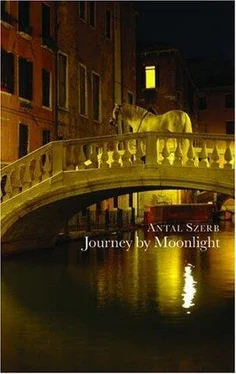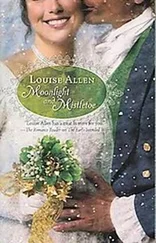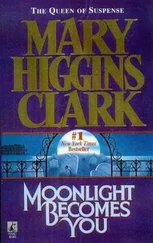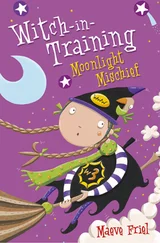They went down to the Campo, the main square, the scallop shape of which was like the city’s smile. He could not tear himself away, but Millicent overruled him:
“Miss Dwarf said nothing about it,” she argued, “and it isn’t Primitive.”
In the afternoon they worked their way round the sequence of city gates. They stopped before each one, and Mihály inhaled the view, the sparse sweetness of the Tuscan landscape.
“This is the landscape of humanity,” he told Millicent. “Here a hill is exactly the size a hill should be. Here everything is to scale, tailored to the human form.”
Millicent thought about this.
“How would you know exactly what size a hill should be?” she asked.
Over one gate was an inscription which read: Cor magis tibi Sena pandit —Siena opens its heart to you. “Here,” Mihály thought, “the gates still utter wisdom and truth: ‘Siena opens its heart’ so that life can be filled with the simple delirium of yearning, in harmony with the veiled beauty of the season.”
The following day he woke at dawn, rose and stared out of the window. The window looked out from the city towards the hills. Slight, lilac-coloured clouds were sailing over the Tuscan landscape, and a tinge of gold slowly and timidly prepared for dawn. And nothing existed but lilac and the gold of first light over distant hills.
“If this landscape is reality,” he thought, “if this beauty really exists, then everything I have done in my life has been a lie. But this landscape is reality.”
And he loudly declaimed Rilke’s verses:
Denn da is keine Stelle,
Die dich nicht sieht. Du musst dein Leben ändern.
Then he turned in alarm towards Millicent, who was still sleeping peacefully. And it occurred to him that there was no reality in Millicent. Millicent was no more than a simile, a random phenomenon of the mind. And she was nothing. Nothing.
Cor magis tibi Sena pandit . Suddenly he was seized by a mortal yearning, the kind of yearning he had felt only as a young child. But this was both more specific and more urgent. He now yearned for that same childhood emotion, with such intensity that he had had to shout his feelings aloud.
Now he saw that his little adventure, his return to the vagabond years, was merely a transition, a step leading him downwards, and backwards, into the past, into his private history. The ‘foreign woman’ remained a foreigner, just as his years of wandering had been a time merely of pointless locomotion, before he had had to turn home, back to those who were not strangers. But then they … were already long dead, and the stray winds blowing round the four corners of the world had swept them away.
Millicent was awakened by the sensation of Mihály sinking his head on her shoulder and sobbing. She sat up in the bed, and asked in horror: “What’s the matter? Mike, for God’s sake, what’s the matter?”
“Nothing,” he replied. “I dreamed that I was a little boy, and a huge dog came and ate my bread and butter.”
He embraced her and drew her towards him.
That day they could find nothing to say to each other. He left the girl to study the Siena Primitives on her own, and, at noon, listened with only half an ear to her charming stupidities on the subject of her experiences.
He did not leave the room all afternoon, but simply lay on the bed, fully-dressed.
“ … My God, what is the whole civilisation coming to if they have forgotten what even the modern Negroes know: summon up the dead .”
This was how Millicent found him.
“Have you a fever?” she asked, and put her large lovely hand on his brow. At her touch, Mihály turned slightly towards her.
“Come for a walk, Mike. It’s such a beautiful evening. And everyone’s out in the streets, and they’ve all got children with such marvellous names, like Emerita and Assunta. Such a tiny little girl and she’s called Annunziata.”
With the greatest difficulty he struggled to his feet and went out. He walked heavily and uncertainly. It was as if he was seeing everything through a veil, and listening to the sounds of the Italian evening through ears filled with wax. His feet were heavy as lead. “When have I felt this way before?” he wondered.
They went down to the Campo, and he stared at the, Torre del Mangia the huge tower of the city hall that rose over a hundred metres, like a needle piercing the evening sky. His gaze slowly followed the tower upwards to its dizzy height. And the tower itself seemed to go on and on, soaring into the reverberating dark-blue sky.
Then it happened. The ground opened up around a deep well, and again he stood before the whirlpool. It must have lasted only a moment, then vanished. Everything was back in its place. The Torre del Mangia was again merely an extremely tall tower. Millicent had noticed nothing.
But that evening, when their sated bodies finally turned away from each other, and he was alone in that profound solitude that a man feels after he has embraced a woman with whom he has nothing in common, the whirlpool opened again (or was he just remembering it?) and this time it remained. He knew he had only to stretch out his hand to feel the presence of the other person, the comforting reality of the friendly body. But he could not bring himself to reach out, and he lay in solitary distress, by choice, for endless hours.
The next morning his head ached and his eyes were horribly red from sleeplessness.
“I’m ill, Millicent,” he told her. “The problem has come back, the one that kept me in bed in Foligno.”
“What sort of illness is it?” she asked suspiciously.
“I can’t exactly say. Some sort of sporadic cataleptic apodictitis,” he declared nonsensically.
“I see.”
“I must get back to Foligno, to the good Doctor Ellesley. Perhaps he can do something. At least I know him. What will you do, Millicent?”
“Well naturally I’ll go with you, if you’re sick. I won’t just leave you on your own. In any case I’ve seen all the Siena Primitives.”
He kissed her hand with emotion. They reached Foligno late that afternoon.
They took separate rooms, at his suggestion. “On the whole, it’s better that Ellesley shouldn’t know,” he explained.
Ellesley called on Mihály towards evening. He listened thoughtfully to his complaints, and made humming noises over the whirlpool sensation.
“It’s a kind of agoraphobia. For the time being, simply rest. Then we’ll see.”
He spent several days in bed. The whirlpool did not recur, but he had no desire to get up. He felt that if he did it would return. He slept as much as possible. He took every tranquilliser and mild sedative Ellesley brought him. If he slept, he might manage to dream of Tamás and Éva.
“I know what’s wrong with me,” he told the doctor. “Acute nostalgia. I want to be young again. Is there a cure for that?”
“Hmmm,” said Ellesley. “Certainly, but not one I can tell you about. Think of Faust. Don’t hanker after youth. God gave you manhood and old age too.”
Millicent visited him regularly and dutifully, though she seemed rather bored. She would call in on Ellesley towards evening, and they would also leave together after the visit.
“Tell me honestly,” the doctor asked one day, in her absence, as he sat on Mihály’s bed. “Tell me honestly, is there some dead person who is very dear to you?”
“Of course.”
“Do you think about them nowadays?”
“I do.”
From that point onwards his methods became less medically orthodox. On one occasion he brought a Bible with him, on another a garland of roses, then a Virgin Mary from Lourdes. Once Mihály became aware as he was talking with Millicent that Ellesley was drawing crosses on his door. And one fine day he produced a string of garlic.
Читать дальше












